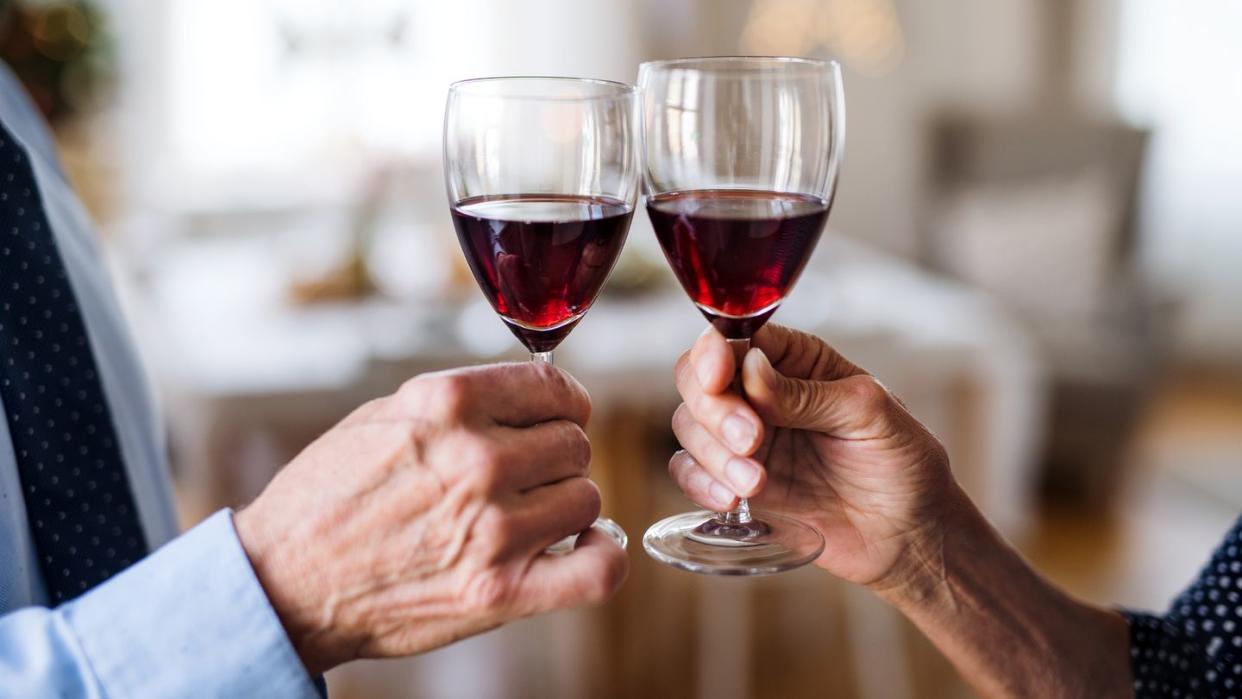Couples Who Get Drunk Together Live Longer, According To Study

There are plenty of factors that contribute to a long lifespan: healthy diet, family history, exercise, and...drinking with your significant other, apparently.
According to a new study published in scientific journal The Gerontologist, couples who have the same drinking habits and throw back a few brewskis together at happy hour are more likely to live longer.
University of Michigan research professor Dr. Kira S. Birditt was inspired by a theory called "the drinking partnership," which claims that couples who have these similar drinking habits also have healthier marriages. Her new study is a deeper dive into her existing research from 2016.
"We're not sure why this is happening," Dr. Birditt previously said, "but it could be that couples that do more leisure time activities together have better marital quality."
In the original survey, she sourced 3,000 couples who had been married for around 33 years. She found that the couples who drank together were happier and stay together longer than the couples in marriages where only one partner drank.
"The purpose of this study was to look at alcohol use in couples in the Health and Retirement Study and the implications for mortality," Birditt says, according to Science Daily. The study included adults 50 years and older across the U.S. with 4,656 married, different-sex couples. They were reportedly interviewed every two years before Birditt made the conclusions.
While the study didn't analyze the specific amount or type of alcohol couples were enjoying, the polled participants were asked whether they had consumed an alcoholic beverage with their partner in the last three months. Those who indicated drinking together during that time period ultimately lived longer than those that did not.
"We don’t know why both partners drinking is associated with better survival," Birditt says. "Behaviors that are good for marriage are not necessarily good for health. There is also little information about the daily interpersonal processes that account for these links. Future research should assess the implications of couple drinking patterns for daily marital quality, and daily physical health outcomes."
Cheers to that!
You Might Also Like

